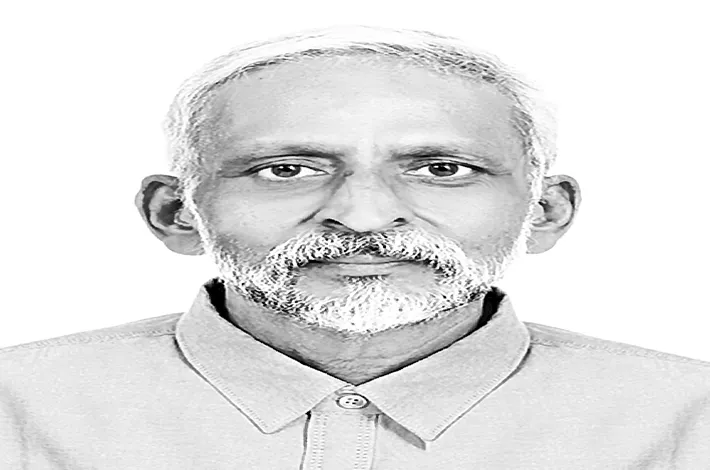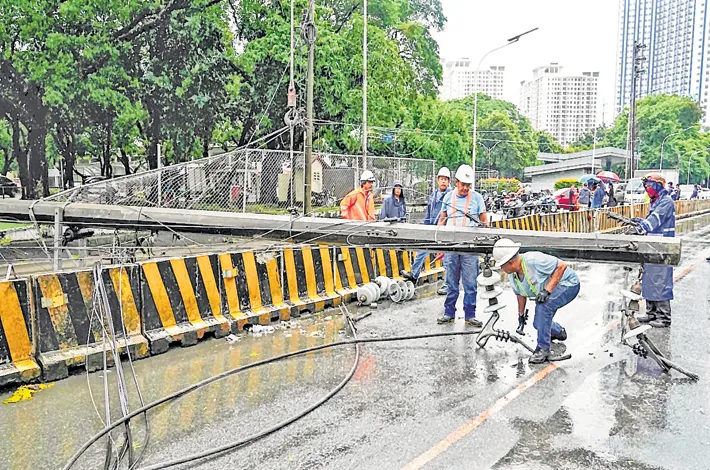Rest assured, fact checkers will rise to counter fake news
10-02-2025 12:00:00 AM

We may soon witness the emergence of news-based businesses to provide veracity ratings for news items akin to CRISIL ratings for bonds.
When I was growing up, my father’s words were the last on any subject, and the elder brothers’ instructions were final. There was no scope for questioning what was suggested or checking whether it was the right thing, knowledge, or advice.
Fast-forward to today, when my daughter challenges my ideas and inevitably seeks validation from Google. Democratic access to information has led to a suspension of faith. The ease of content creation and its public availability have birthed a world of make-believe where no one knows what is true.
Soon, we will no longer need to seek out the world of fantasy. The realm of make-believe and dreams is already here, and if it isn’t, it’s remarkably easy to create. Unless the community of fact-checkers evolves into a significant movement, we will be at the mercy of our beliefs and unregulated information. No one knows whether what they are consuming is true. Every moment, some new versions and thoughts are uploaded and consumed. News is nothing, and yet everyone knows everything. To beat someone else by sharing what could be first-hand forward is a necessity in the make-believe world.
There is no agreement on who is responsible for fact-checking. A few believe that social media, carrier platforms, and creators share this responsibility. The rest think that everything should be allowed to evolve under the principle of freedom of expression, and like butter, the truth will eventually emerge. Major social media platforms are abandoning third-party fact-checking, and the smaller ones are likely to follow suit. The volume of new content is overwhelming, with everyone becoming a creator.
The platforms seem content with ritualistic moderation or hide behind the guise of freedom of expression. The platforms’ moderation only does limited checks, focusing solely on whether the content meets the guidelines rather than assessing its truthfulness.
They may be correct regarding their scope of responsibilities. However, with the platforms permitting unrestricted access to upload information at any time and from anywhere, does this absolve them of their duty to ensure that false or misleading messages and information are not uploaded? Perhaps it does.
They are not traditional media, where contributions come from a controllable ecosystem. Therefore, tighter regulations are needed, but we know that rules have failed to curb the menace. However, one is now banking on crowdsourced fact-checking to help.
It is well-known that fake news and information pose a serious threat to society and the government. This threat is not solely linked to the polarisation of opinions during elections or religious events, nor to the misinformation and misguided advice regarding mental, physical, financial, or emotional well-being.
We have witnessed the harm that false information and fake, fabricated content can cause. They can divide people and establish a narrative that builds a polarised version of society. The algorithms continue sharing information based on beliefs and preferences, creating a bubbling ecosystem of misguided thoughts. This further gives rise to a fake world that individually addresses the population built on the foundation of unchecked information.
We may soon witness the emergence of new organisations as potential gateways to authentic news. As one of my friends, ex-cop Umesh Sharaaf, suggests, news-based businesses may arise to provide veracity ratings for news items, akin to CRISIL ratings for bonds. The prevalence of fake news is so extensive that the public will demand upfront fact checks and veracity ratings. Mass media and social media platforms will be compelled to attach veracity ratings to their news items, shorts, videos, and featured messages on their platforms.
The ”Swiss cheese’ method of media literacy, inoculation, correction, content labelling, content moderation and content de-platforming, as suggested by Matt Field, based on a work by Ian M. Mackay, seems to provide some respite. But it is not enough. At present, we see a minimal impact from algorithmic-based keyword search and content identification for story verification or the removal of stories and links that have been recognised as false or fake—nothing much happens.
Perhaps it is time for fact-checkers to narrow their cast and associate with specific industries, tribes, communities, processes and identities so that they can efficiently and effectively remove false information in their field of interest and focus. Anticipate the emergence of a tribe of fact-checkers, whether as a voluntary system or a business venture, from the murky depths of false information. Be careful not to overestimate their influence; inaccurate information will still slip through their meticulous filters.
It will be able to reduce the impact, if not wholly eradicate it. The problem is shifting goalposts with rapidly evolving technology. Whenever a fact-checking system is established, interested parties find loopholes and stay one step ahead. For fact-checkers and advocates of truth, this is a never-ending fight. However, this should not discourage attempts to find a solution. Remember, a problem exists because there are alternative solutions.








